Merkel upbeat about coalition talks with SPD beginning
German Chancellor Angela Merkel is hopeful that talks with the Social Democrats (SPD) on forming a new coalition could finally begin despite fierce opposition to a partnership that has governed Germany for eight years.
“I think it can succeed,” Merkel said Sunday upon arriving at SPD headquarters for talks to decide whether a re-run of the so-called grand coalition would be possible in the next German government.
The talks come more than three months after Merkel’s conservative alliance of CDU/CSU won the nationwide elections. The SPD, which came second in its worst performance since 1933, said after the votes that it would go into opposition, prompting Merkel to start talks with two minor parties. Those talks ended in failure and the SPD revised its stance upon a request by the German president.
However, elements inside the center-left party have fiercely campaigned against another partnership with the conservatives as the two sides differ vastly on issues such as immigration, tax, healthcare and Europe.
Merkel said the parties have to tackle the differences quickly although she admitted they had a lot of work to get through in the coming days.
SPD leader Martin Schulz said his party was taking the talks positively despite the grim prospects they could face. He said the two sides would debate issues for five days before deciding to launch full-blown coalition talks.

“We won’t draw any red lines,” Schulz, a former European Parliament chief, said, adding that the SPD would enter negotiations constructively.
Talks are supposed to be held under a media blackout to prevent a repeat of incidents that supposedly led to failure of Merkel’s previous efforts to form a coalition.
A SPD congress on January 21 would decide if the party should begin coalition talks with the conservatives. That would depend on what party’s leadership recommends after the current talks with Merkel ends on Friday. If final talks begin, they are expected to drag until March and in case they eventually fail, Merkel would usher in her fourth term in office running a minority government, a first in Germany’s post-war era.
Jordan sentences former lawmaker for supporting Palestinian resistance
Basij volunteer forces hold massive drills in southwestern Iran
Israeli war criminals 'not welcome', US city says after ICC ruling
US vetoing of Gaza ceasefire resolution ‘disgraceful’: Iran’s UN envoy
VIDEO | IAEA adopts anti-Iran resolution tabled by E3
VIDEO | Iran's president urges Pope to help end Israel's onslaught in Gaza
Iran's senior legal official: ICC arrest warrant for Netanyahu ‘great victory'
Nov. 21: ‘Axis of Resistance’ operations against Israeli occupation


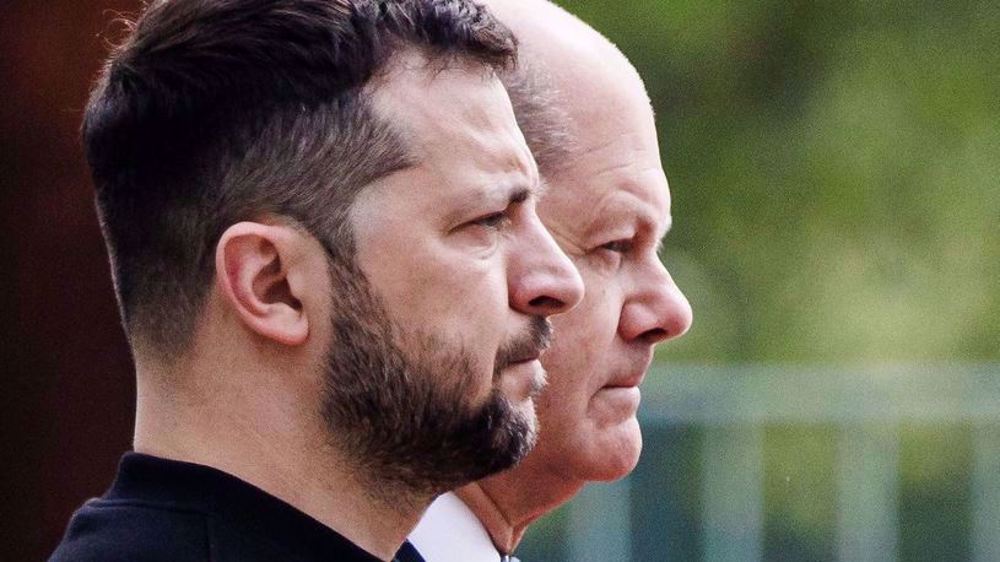

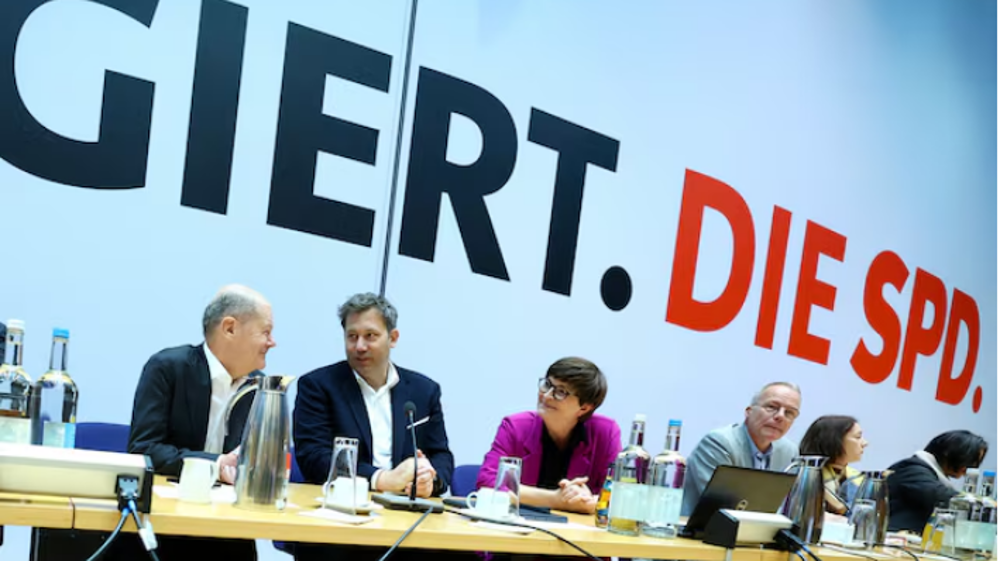



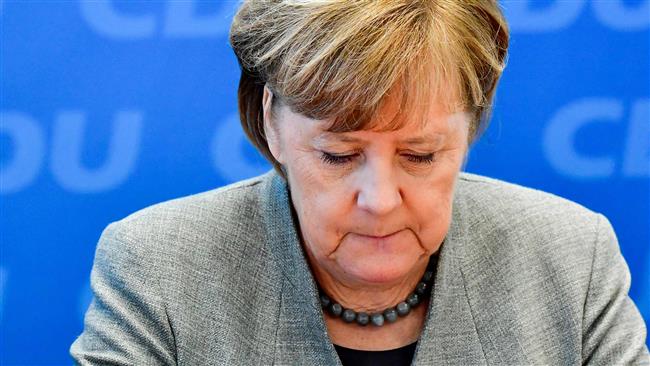
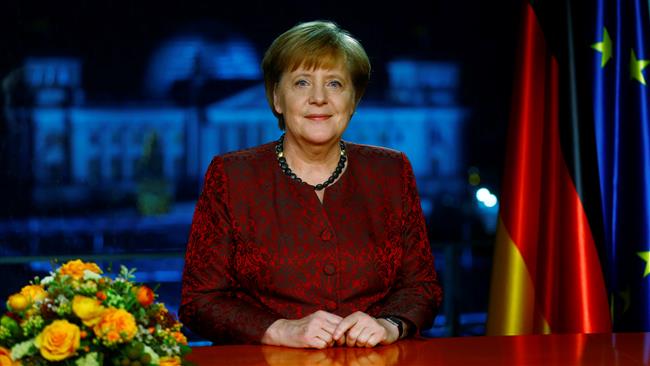
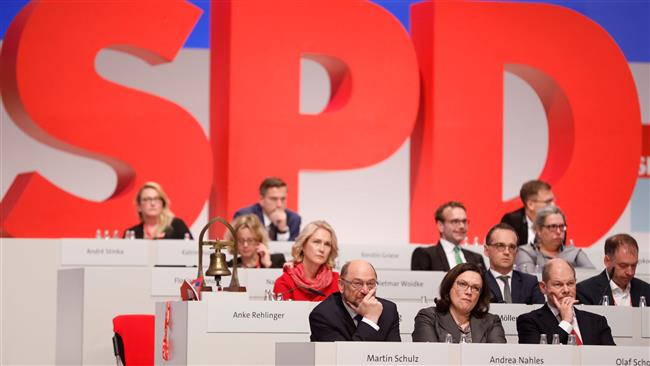
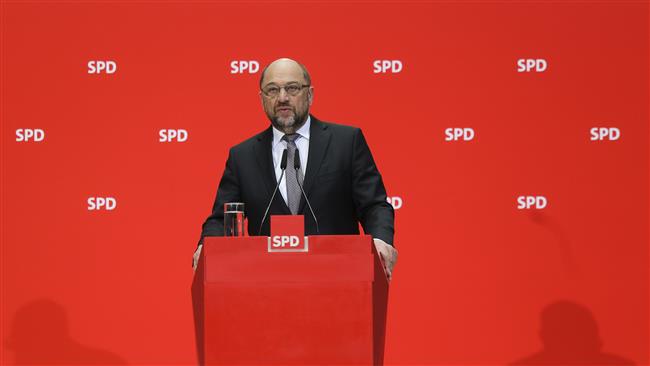

 This makes it easy to access the Press TV website
This makes it easy to access the Press TV website